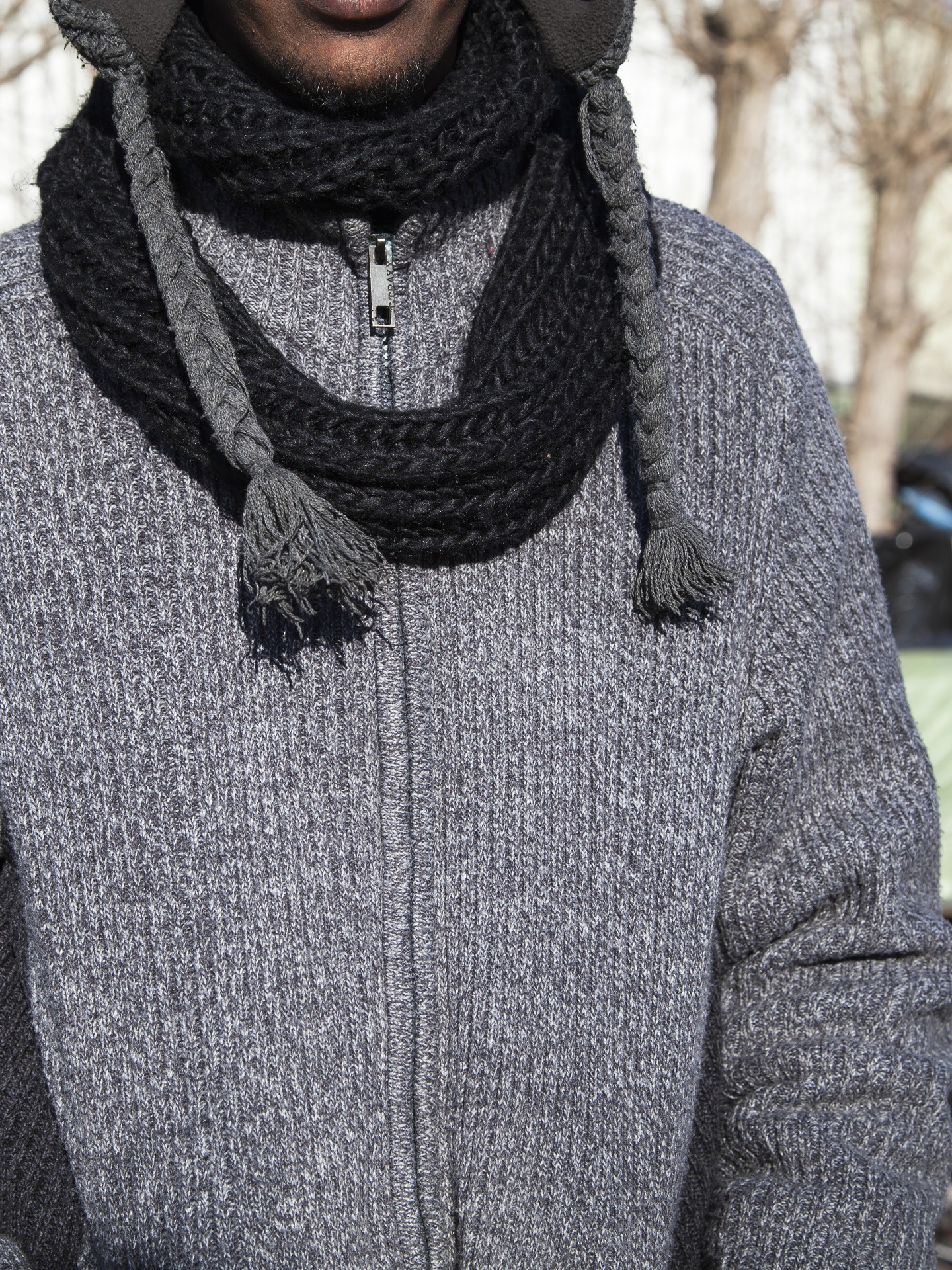DESCRIPTION
Having been a refugee himself, Iman Tajik travelled to the Calais “Jungle” Refugee camp in 2015 to help people in the camp and to assist a friend also from Glasgow School of Art, who was making a film. After a few days, he began taking photographs, but his approach was informed by his own experience as a refugee. "I didn’t use full length portraits of refugees to impress my viewer by allowing them to look on ‘sad refugee eyes’; I wanted to transfer/show these people how it feels to be in a refugee camp. Ninety nine percent of refugees don’t want to show their faces and expose themselves living in such undeserved and horrible conditions which is not suited for them. I want to show these people in the most ethical way.”
Can You Hear Me I depicts a man with Scottish names on his American-style T-shirt. Tajik writes: "Coming from my life in Glasgow, it made me realize that place names travel along with immigrants. During my research I found many interesting stories and letters from people from the time of the Highland Clearances which describe their hard and sad experience of crossing borders, people leaving in search of a better life. From their experience and feeling of journeying and leaving their homeland, I find many similarity in today’s refugee crises."
DETAILS
-
Artist
Iman Tajik
-
Date
2015
-
Medium
Inkjet print mounted on card
-
Object number
3234
-
Dimensions unframed
96 × 73 cm
-
Subject
-
Copyright
Ⓒ Iman Tajik
ARTIST PROFILE
Iman Tajik, born 1982
Born in Teheran in 1982, Iman Tajik studied Art and Design at school and college. He left Iran and was granted refugee status in July 2012 in Glasgow. He studied photography at the City of Glasgow College before being offered a place at Glasgow School of Art on to the BA(Hons) Fine Art Photography course graduating in 2018 with a First Class degree. His work includes installations incorporating video, photography and performance. Tajik lives and works in Glasgow. “We must not forget” he writes " that anyone can be a refugee too."







